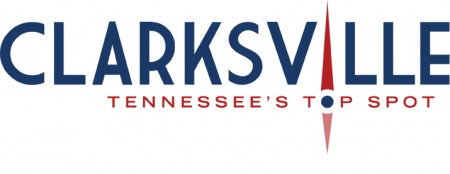City of Clarksville
 Clarksville, TN – Clarksville Mayor Kim McMillan is forming an Opioid Task Force to help the City develop a coordinated local response to the opioid crisis gripping America.
Clarksville, TN – Clarksville Mayor Kim McMillan is forming an Opioid Task Force to help the City develop a coordinated local response to the opioid crisis gripping America.
The Mayor’s Opioid Task Force is charged with advising the Mayor of Clarksville on a coordinated plan to reduce opioid abuse, dependence and overdose in Clarksville and to draft a report of findings and recommendations for action.

The task force also will examine the City’s ongoing lawsuit against the makers and distributors of opioids and be a liaison to the Mayor, City Council and citizens of Clarksville concerning the lawsuit.
This role will include understanding the impact of opioid abuse on the community; providing data and insight for use in the legal effort; reporting on the progress of the lawsuit to City leaders and the community; and recommending possible strategies for using resources provided by the recovery of damages in the lawsuit.
“To identify actions we can take as a City, to monitor and engage the public with our lawsuit, and to seek long-term solutions to address this crisis, I have called for the formation of an Opioid Task Force,” Mayor McMillan said. “The opioid epidemic has been taking lives, destroying families and undermining the quality of life for Clarksvillians. So this is a significant social and public health challenge requiring a coordinated, Citywide approach.”
The task force will meet at least monthly for six months, and longer and more frequently as needed, and present a draft of a plan of action to the Mayor within 120 days of its first meeting, which will be at 11:30am Wednesday, September 12th, 2018 at Clarksville City Hall. Thereafter, the group will meet as needed to help implement the plan and monitor the lawsuit.
Initial Members
The Clarksville Opioid Task Force will grow to about nine members over the next few weeks. Here are the citizens who have already committed to serve:
- Dr. Vernon “Mike” Carrigan, chief administrator of Premier Medical Group.
- Jeremy Bowles, a pharmacist.
- Dr. James “Danny” Davis, a chiropractic health practitioner.
- Sherry Pickering, executive director of the Montgomery County Veterans Coalition.
- Leslie Chiodini, executive director of the Clarksville-Montgomery County Community Action Agency.
“Our initial task force members have been involved in some aspect of the opioid issue for several years,” Mayor McMillan said. “Coming together and hearing from a variety of stakeholders will allow us to harness our collective expertise and put us in a stronger position to make an impact.”
Opioid Crisis By The Numbers
Tennessee Department of Health data released last week show 1,776 Tennesseans died from drug overdoses in 2017, the highest annual number of such deaths since reporting began. Prescription opioids are the most common drugs associated with overdose deaths in Tennessee.
More Tennesseans died last year from drug overdoses than from automobile crashes.
TDH data show almost three fourths — a total of 1,268 — of drug overdose deaths in Tennessee in 2017 were associated with opioids. Of those, 644 were associated with prescription opioids for pain, which include drugs such as hydrocodone, oxycodone, morphine and codeine.
Deaths related to “street” drugs obtained without a prescription were a key driver of the increase in overdose deaths in Tennessee 2017. There has been a dramatic increase in deaths related to fentanyl, which is similar to heroin but much more potent and dangerous.
Heroin was associated with the deaths of 311 Tennesseans in 2017, a 20 percent increase over the previous year. Fentanyl, which is often used to “cut” or mix with other drugs, was associated with 500 deaths, a 70 percent increase since 2016.
Clarksville Police Department statistics show that the department in 2017 made 320 arrests involving illegal possession of prescription medications, up from 259 in 2016. The department made 23 heroin arrests in 2017, up from just eight in 2016. Meth was involved in 228 arrests in 2017, and 141 in 2016. Crack cocaine arrests declined to 63 in 2017, after hitting 91 in 2016.
The Ongoing Lawsuit
Along with hundreds of Cities and Counties across America, Clarksville is suing opioid manufacturers and distributors, claiming that the companies “aggressively and unlawfully” marketed their drugs while downplaying their addictive qualities. Those actions caused drug sales, and addiction, to soar, the City claims.
The suits, filed in district courts around the country, will eventually end up in the U.S. District Court for the Northern District of Ohio, where a federal judge is overseeing the joint legal action.
Because it is local police, health and other government workers who deal directly the problems associated with opioid abuse, the City of Clarksville is seeking reimbursement from the opioid industry for prevention, treatment and law enforcement costs.
Some programs Clarksville and other plaintiffs deem necessary include:
- Measures to “prevent opioid use, injury and death” through purchase of naxalone kits for users, first responders and others, along with training on their use.
- Measures to “treat, cure, and prevent opioid misuse and addiction” through creation of mental health and treatment clinics, and public education.
- Measures to “reduce the supply of dangerous opioids” by a variety of steps, including the hiring and training of more police personnel and staff for prescription monitoring programs.



